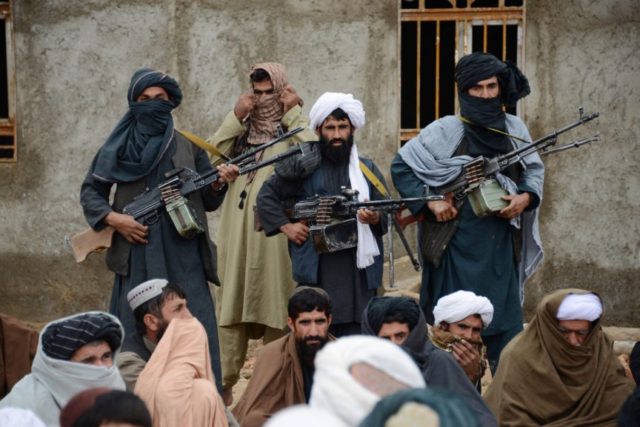The Taliban has expressed a desire to have discussions with the U.S., instead of Kabul, about ending the nearly 17-year war in Afghanistan, despite Afghan President Ashraf Ghani’s historic peace offer.
The Afghan president has proposed to the Taliban a ceasefire and an opportunity to organize as a legitimate political group and pursue their objectives through peaceful means.
In an editorial for the New York Times (NYT), citing various valid points, Hekmat Khalil Karzai, the deputy foreign minister of Afghanistan, described Ghani’s deal as “unprecedented.”
Nevertheless, Taliban leaders have apparently rejected the offer, with only a small fringe group showing signs of interest.
U.S. Secretary of Defense Jim Mattis did acknowledge recently that some members of the Taliban are receptive to the offer.
The terrorist group notes on its official website:
This logical policy of the Islamic Emirate of Afghanistan [the Taliban] to talk to American invaders about peace and stability rather than talking to their slave regime is now widely accepted by the independent western analysts and other intellectuals.
…
The permission of peace and war are with the Americans…those who understand logic and reason and those who have wisdom should judge for themselves the correct course and resolve of the Islamic Emirate of Afghanistan about direct peace talks with the American invaders.
Taliban terrorists have long maintained the complete withdrawal of all foreign forces as a precondition for negotiations, but the United States has refused to abide.
While Ghani’s proposal does not mention a potential withdrawal, a recent peace process declaration “hinted at the possibility of discussing such a withdrawal,” notes Borhan Osman, the senior analyst for Afghanistan for the International Crisis Group (ICG) in an editorial published by NYT.
Osman urges the United States to consider pulling its forces out of Afghanistan, adding:
When there is a settlement, it would not be unthinkable for the Taliban to accept some American presence or support to help contain potential insurgent splinter groups and the Islamic State [ISIS/ISIL] militants who reject the peace process.
In private, Taliban leaders have suggested they might need international support during the transition to help stabilize the country economically and politically.
The United States has devoted significant blood and treasure to the ongoing war in Afghanistan.
Specifically, the U.S. has spent nearly a $1 trillion and lost more than 2,260 American service members, primarily to Taliban attacks, since the war began in October 2001.
Predominantly Taliban jihadists have also maimed nearly 20,290 U.S. troops.
Although reconciliation between Kabul and the Taliban are a significant component of U.S. President Donald Trump’s strategy to end the war, the administration argues the Afghan government should lead and own the negotiations.
The Afghan unity government of President Ghani and Chief Executive Officer Abdullah Abdullah appears to be facing some challenges at the time.
Cornelius Zimmermann, NATO’s senior civilian representative, told Pajhwok Afghan News last week that a strong Kabul is essential to a political settlement with the Taliban.

COMMENTS
Please let us know if you're having issues with commenting.